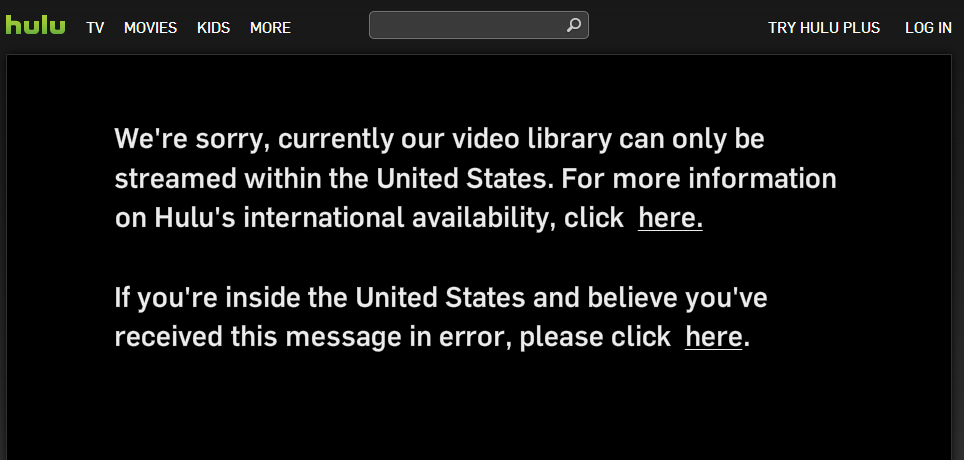TorrentFreak Email Update |
- Movie Boss Loses the Plot Over ISP Piracy Liability
- ‘Failed’ Piracy Letters Should Escalate to Fines & Jail, MP Says
- Dotcom’s Internet Party Wants to Abolish “Geo Blocking” Restrictions
| Movie Boss Loses the Plot Over ISP Piracy Liability Posted: 26 Jun 2014 03:47 AM PDT
The decision did nothing to change the positions of either company and in recent weeks a very public dispute broke out between iiNet Chief Regulatory Officer Steve Dalby and Village Roadshow co-CEO Graham Burke. The topic? The former’s continued but now legally supported refusal to take responsibility the activities of its customers. While some may have a level of sympathy with Burke’s predicament, retreading old ground over ISP liability can hardly be the solution. Today even more inflammables were thrown onto the fire. Should a knife manufacturer be held responsible for what happened in the Psycho shower scene? Should Ford be held liable for a drunk driver piloting one of their vehicles? These rhetorical questions have well-trodden answers, but Burke hasn’t been paying attention. In a new interview with CNET, Burke again attacked Dalby, accusing him of “distorting the picture” in the face of the Village Roadshow chief’s self-claimed fairness. “For him to be continuing to distort the picture when he clearly knows otherwise is very depressing,” Burke said. “I’m dealing with it in a transparent and open and honest way and I wished we could get that from iiNet.” And then the bombshell. “iiNet are selling a car which happens to kill people on the roads, so they should be paying towards that. It’s the car that’s faulty. In this instance it’s the fault of the car, not the driver. They’re providing a service which enables people to steal other people’s property, so…some of the costs should be theirs,” Burke said. “All Mr Dalby wants is to continue to have this extraordinary smorgasbord of product that’s made by creative people, with the sweat of their passion and labors, and that he can have a mechanism where he can be the conduit that provides that free and he clips the ticket. He’s complicit.” Clearly there is nothing inherently faulty with iiNet’s service. It’s essentially an empty pipe that the customer can fill in the manner of his choosing, and one that’s no more broken than the postal or telephone systems that preceded it. Nevertheless, Burke still wants to shoot the messenger and Dalby is having none of it. There can be no doubt that Village Roadshow and its Hollywood affiliates feel they have a big problem to solve, but with arguments like these it’s easy to see how the dispute with iiNet has gone on for so long. Indeed, there appears to have been no progress made in half a decade. Of course, there’s always the possibility that the government will step in with the three strikes system that Burke is pushing hard for. If that happens, Burke will have “won”, but when that victory will arrive is another matter entirely, raising the specter of yet more out-of-date legislation before it even arrives. Source: TorrentFreak, for the latest info on copyright, file-sharing and anonymous VPN services. |
| ‘Failed’ Piracy Letters Should Escalate to Fines & Jail, MP Says Posted: 26 Jun 2014 02:46 AM PDT Proponents of the Digital Economy Act 2010 believed it had the solutions to deter consumer file-sharing, but four years on and the relevant measures remain dormant. This inactivity led to a new and recently announced solution, the so-called Voluntary Copyright Alerts Program. VCAP is an agreement between the music and movie industries and several of the UK’s leading ISPs. The idea is that the entertainment companies monitor P2P networks (such as BitTorrent) and identify IP addresses connected to the illegal sharing of infringing content. That data is passed to the ISPs, the IP addresses are linked to customer accounts, and errant subscribers are sent a warning. The idea behind VCAP is to educate the casual file-sharer about legal alternatives in the hope he will change his ways, but the softly-softly approach has its limitations. A reliable source close to the program told TorrentFreak that the focus of VCAP is the repeat infringer. However, after a customer receives four warnings he will receive no more. On some level there appears to be some kind of acceptance that little can be done about hardcore file-sharers, an approach mirrored in the U.S. with its Copyright Alerts Scheme. But while there are suggestions that the worst-of-the-worst can simply do whatever they like under the UK program, consideration is already being given to what happens should VCAP fail following its 2015 introduction. Aside from the Digital Economy Act sitting in the wings, Prime Minister David Cameron’s IP advisor believes that the carrot needs to be backed up by a stick. In a report published yesterday largely detailing the “Follow the Money” approach to dealing with pirate sites, Mike Weatherley MP says now is the time to think about VCAP’s potential failure. “The Voluntary Copyright Alert Programme (VCAP) is welcomed and will be a good step forward once it is hopefully in operation in 2015, although it is primarily an education tool,” Weatherley says. “However, we need to start thinking now what to do if these notices are ignored by infringers – will VCAP be followed by something more enforceable?” Weatherley says that while the IP enforcement “stick” is a “last resort option”, being able to show “teeth” is important. Unsurprisingly, those measures involve hitting persistent pirates harder and harder each time they show defiance. “It should be a graduated enforcement response,” Weatherley explains. “Warnings and fines are obvious first steps, with internet access blocking and custodial sentencing for persistent and damaging infringers not to be ruled out in my These suggestions aren’t new, but this is the second time in a matter of months that the Prime Minister’s closest advisor on IP matters has spoken publicly about the possibility of putting persistent file-sharers in jail. Earlier this year we reported on comments Weatherley made in the House of Commons on the prison option. Although he never denied using those words, the MP did attempt to dismiss the tone of the ensuing debate as containing “misinformation”. Not to say though, that jail will be immediately on the cards for pirates. Weatherley says that education has to come first, with an emphasis placed on informing consumers that “piracy and similar illegal activities are not in their best long-term interests and are not socially acceptable.” The second phase will see the onus placed on industry “to get their product right and attractive” to consumers. “[The third stage] once we have won the 'hearts and minds' of consumers and provided suitable content, keeps the option of enforcement of copyright law on the table when all else has been exhausted,” the MP says. Given Weatherley’s suggested plan for preparing now for VCAP’s failure, the ISPs involved in the scheme (BT, Sky, TalkTalk and Virgin Media) must be considering the kind of road they’re being led down. While sending out warnings with no mitigation measures sounds reasonable enough today, if that transforms into a cash fine, disconnections and jail sentence model in future, the whole thing could turn into a PR disaster. Source: TorrentFreak, for the latest info on copyright, file-sharing and anonymous VPN services. |
| Dotcom’s Internet Party Wants to Abolish “Geo Blocking” Restrictions Posted: 25 Jun 2014 09:23 AM PDT
The party is currently preparing for the general election in September. While Dotcom will not be on the voting ballot himself, he remains one of the main influencers of the party’s policy. As the name suggests, many of the party’s core issues revolve around the Internet, copyright included. Today the Internet Party released a draft of its copyright policy with several suggestions for an overhaul of current legislation. One of the key issues the Internet Party wants to change is the liability New Zealanders face for using VPN services and other circumvention tools to access legal content. At the moment, it is illegal for them to stream content from U.S-based Hulu and Netflix via proxies or VPNs. TorrentFreak spoke with Kim Dotcom who notes that consumers shouldn’t be punished for the inability of Hollywood to release its content globally. Dotcom hopes that these changes will eventually put a stop to the unnecessary release delays. “The primary goal of this policy is to force copyright holders to release their content globally, without geographical restrictions. If a TV-show is not available in New Zealand for three months after the U.S. release, there should be no enforcement during this period,” Dotcom tells us. “Content owners should be held responsible, not the public. The ‘geo blocking’ proposal forces Hollywood to change its business model and release its content worldwide without delays,” he adds. Dotcom hopes that the Internet Party proposal will serve as model for future copyright law that will eventually be adopted around the world.  Internet Party leader Laila Harré notes that the current situation is unmanageable. The Internet has made it possible to release content worldwide without any delays, but content owners refuse to give consumers what they want. "A Kiwi who wants to watch the latest season of first run TV shows like Games of Thrones, for example, shouldn’t be forced to jump through hoops to access what should be legally and easily available online. It's a ridiculous situation in this day and age,” Harré notes. Thus far most progress has subsequently been drawn in the opposite direction. In an attempt to crack down on people who bypass geo restrictions, Hulu recently started to ban all visitors who use a VPN connection. Instead of fighting circumvention, the Internet Party believes that copyright holders should address the root of the problem themselves. Making sure that the latest TV-shows can be watched legally is a must, and although some progress has been made over the years, the legal options are still lacking. "Some excellent work has been done by some copyright owners and content providers to make good legal options available to New Zealanders. But there's still a long way to go, especially for some types of content such as globally popular first run television shows broadcast overseas but not available in New Zealand for weeks or months, if at all,” Harré says. Aside from geo blocking issues, the Internet Party also wants to abolish the Internet disconnection sanction available under New Zealand’s “three-strikes” law, and strengthen the “safe harbor” provisions for Internet services to prevent abuse by copyright holders. The full draft of the Internet Party’s copyright and open research policy is available here. Source: TorrentFreak, for the latest info on copyright, file-sharing and anonymous VPN services. |
| You are subscribed to email updates from TorrentFreak To stop receiving these emails, you may unsubscribe now. | Email delivery powered by Google |
| Google Inc., 20 West Kinzie, Chicago IL USA 60610 | |

